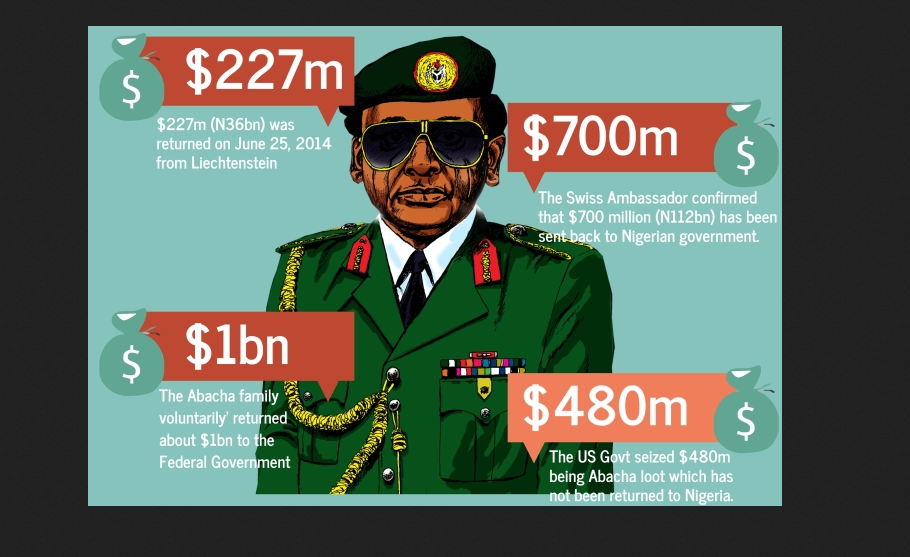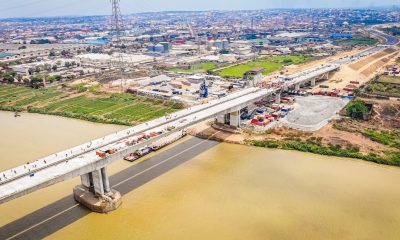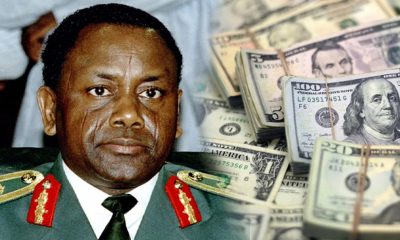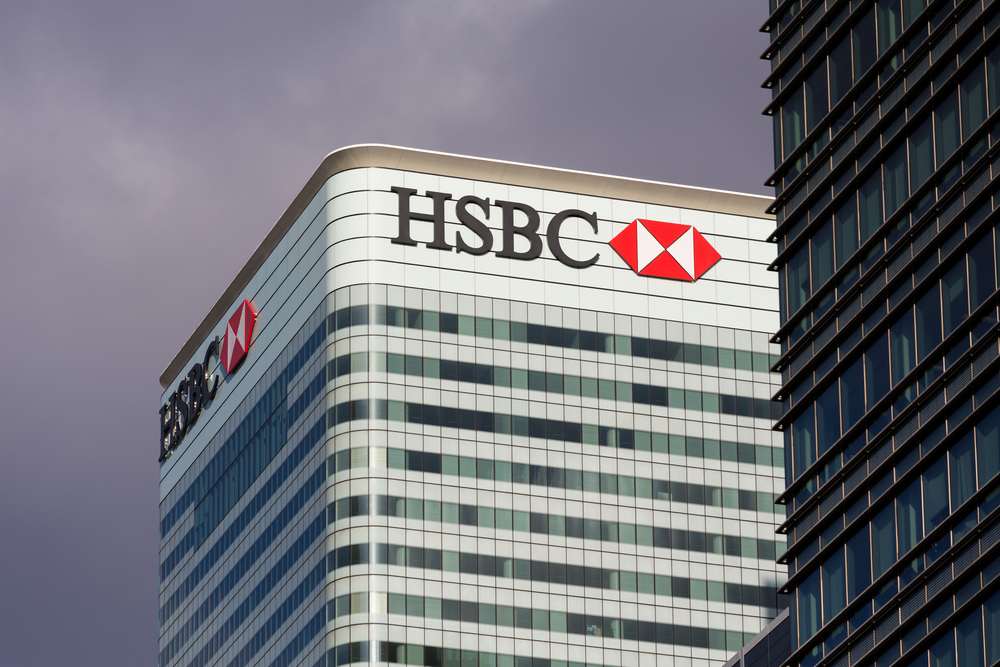General
$500m Abacha Loot: US Refuses to Deal with Malami’s Lawyers

By Dipo Olowookere
The United States government has maintained that it would not have anything to do with lawyers of Nigeria’s Attorney-General of the Federation (AGF), Mr Abubakar Malami, in the repatriation of the $500 million Abacha loot.
Instead, the US government, through its Department of Justice, said it would only do business directly with the Nigerian government.
In an exclusive report by The Cable, it was disclosed that President Muhammadu Buhari was told point blank during his visit to the US that no party would be listened to in the restitution of the funds.
Mr Malami had attempted to engage private lawyers who were going to take a cut as “legal fees” — even though they did not play any role in the recovery of the stolen funds traced to the former military head of state, Sani Abacha, who ruled Nigeria from 1993 to 1998.
The recoveries were made in 2014 under President Goodluck Jonathan and domiciled with the US government — and all the lawyers involved had been paid 4% of the funds as their fees.
The funds were to be returned to Nigeria on the condition that the federal government would sign an MoU to avoid the mismanagement associated with recoveries under President Olusegun Obasanjo.
Like Switzerland, Like America
In 2016, however, Mr Malami went ahead to appoint two Nigerian lawyers again — in a pattern very similar to the $321 million Abacha Loot recovered from Luxembourg also in 2014 for which the lawyers he hurriedly engaged were to be paid almost $17 million for doing nothing.
In the Switzerland case, Mr Malami appointed Oladipo Okpeseyi, a senior advocate, and Temitope Isaac Adebayo, in 2016 apparently to replicate the job already done.
Incidentally, Okpeseyi and Adebayo were lawyers to the Congress for Progressive Change (CPC), the APC legacy party of which Malami was the legal adviser.
He also proposed to use the same lawyers in the US case, but TheCable understands that the department of justice has consistently refused to entertain them, thereby stalling the return of the money to Nigeria.
America has now promised to return the $500 million but without the involvement of the appointed intermediaries.
The Nigerian government has also undertaken to spend the money on social protection programmes.
According to documents seen by TheCable, the DoJ initiated a legal action in November 2013 on the request of then attorney-general, Mohammed Bello Adoke, to confiscate assets worth $500 million traced to the Abacha family in France, Jersey and the UK.
Although the funds were not in the US, they fell foul of America’s money laundering laws having passed through the country in one form or the other.
Following a civil forfeiture complaint, the DoJ froze $280 million of Abacha Loot in Jersey, $140 million in France and $40 million in England.
Under US rules, any claimants to the asset were required to file a claim no later than 35 days after direct notice was sent to them or 60 days after the publication of notice.
The Forfeiture
Neither Mohammed Abacha, son of the late dictator, nor his companies filed any such complaint within the period until it expired.
Mr Adoke had instituted a criminal case against the Abachas in Nigeria which eventually forced the family to enter into a settlement with the federal government to return the looted funds.
On June 2, 2014, the DoJ requested the US district court for the District of Columbia to enter into a default judgment against the Abachas in the suit, United States of America v. All Assets Held in Account Number 80020796 in the Name of Doraville Properties Corporation at Deutsche Bank International Limited in Jersey, Channel Islands and All Interest, Benefits of Assets Traceable Thereto.
However, some lawyers appeared on the scene claiming to have been engaged by Nigeria to handle the recovery of the funds.
They showed a letter of authority signed by Akin Olujinmi, Nigeria’s attorney-general between 2003 and 2005 — even though the Nigerian government had engaged Enrico Monfrini, a Swiss lawyer, to do the same job in 1999.
The lawyers — Jude Chukwuma Ezeala, Kenneth A. Nnaka, Godson Nnaka and Charles Lion Agwumezie — were also said not to have done anything in 10 years since Olujinmi authorised them.
Their involvement was opposed by Adoke, who wrote a letter dated May 26, 2014 to the Asset Forfeiture Money Laundering Section, Criminal Division, U.S. Department of Justice, to state that the lawyers were not authorised.
Thereafter, specifically on June 27, 2014, the DoJ requested that US district court for the District of Columbia to strike out the complaint filed by the four lawyers.
As a result, the DoJ got a motion in the US district court for DC on July 3, 2014 — finally allowing for the recovery of the funds.
In all, well over $1 billion was traced to Abacha in the UK, Luxembourg and Liechtenstein as at 2012 when Jonathan was president.
Returned With Interest
The $321 million recovered from Luxembourg in 2014 under President Goodluck Jonathan was domiciled with the attorney-general of Switzerland pending the signing of an MoU to avoid the mismanagement associated with previous recoveries.
Pio Wennubst, assistant director-general and head, Global Cooperation Department, Swiss Agency for Development and Cooperation, told NAN recently that the money was returned to Nigeria with a $1.5 million interest, bringing it to a total of $322.5 million.
TheCable reported Malami’s attempt to pay lawyers for the deal, prompting a parliamentary inquiry.
The house of representatives has set up a probe panel to investigate the suspected sleaze.
The recovery was done by Enrico Monfrini, a Swiss lawyer, who vehemently denied syndicated media articles that he was asking for another 20% of the recovered funds for the final leg of the restitution to Nigeria.
In an email to TheCable, however, Monfrini had explained that there is no truth in the allegation.
“I never had the audacity to claim for additional fees. This figure of 20% is simply invented. I didn’t reject any proposal made by Mr Malami since my fees were already paid a long time before Mr Malami’s appointment as attorney general,” he said, adding that “any allegations against that would just be a lie.”
“The repatriation of the $321 million was not completed by me. It’s a matter which is normally dealt between governments and which doesn’t entail the engagement of lawyers.”
Malami does not respond to calls or text messages from TheCable.
Source: The Cable
General
Nigeria Signs Defence Joint Venture with Terra Industries

By Adedapo Adesanya
Nigeria has signed a joint venture with defence technology company, Terra Industries Limited, as part of efforts to boost the country’s defence industrial capacity and advance indigenous high-technology development.
The Defence Industries Corporation of Nigeria (DICON) and Terra signed a Memorandum of Understanding (MoU) for the establishment of the Joint Venture Company (JVC), both parties announced on Monday.
The partnership provides a robust framework for the local production, assembly, research and development (R&D), and training in high-technology systems, including drones, cybersecurity solutions, robotics, and other ancillary software and hardware platforms.
The MoU, executed pursuant to the DICON Act 2023, underscores DICON’s statutory mandate to collaborate with indigenous and foreign defence-related industries through Public-Private Partnerships. Under the agreement, the Joint Venture Company will operate as a subsidiary of DICON, jointly promoted and owned by DICON and Terra Industries, and duly incorporated in Nigeria.
This marks the latest move by Terra, which recently became a $100 million company, following recent raises from investors including Flutterwave CEO, Mr Gbenga Agboola, American actor Jared Leto as well as 8VC founded by the co-founder of Palantir Technologies Inc., Mr Joe Lonsdale. Other investors included Valor Equity Partners, Lux Capital, SV Angel, Leblon Capital GmbH, Silent Ventures LLC, Nova Global.
Terrahaptix, founded by Mr Nathan Nwachukwu and Mr Maxwell Maduka, are using the new funding to expand Terra’s manufacturing capacity as it expands into cross-border security and counter-terrorism.
The latest agreement with DICON is designed to establish advanced production and assembly lines for high-tech equipment within Nigeria, while promoting meaningful technology transfer, skills development, and specialised training for Nigerian personnel.
It also aims to strengthen local sourcing of raw materials, reduce dependence on imports, and enhance domestic industrial capacity and strategic autonomy. Additionally, the partnership will support the supply of security equipment to the wider Nigerian security agencies, other security agencies, positioning Nigeria as a competitive player in the global defence manufacturing sector.
Under the agreement, Terra Industries will provide technical expertise, professional services, and training, and will attract both local and foreign investment to strengthen the defence industrial ecosystem.
The company will also facilitate the procurement of production equipment, coordinate local and international training programmes, and provide access to manufacturing know-how, tooling, spare parts, and established defence sector supply chains.
Speaking on this, Mr Nathaniel Nwachukwu, CEO of Terra Industries, noted that the partnership “Demonstrates confidence in indigenous Nigerian engineering capability and creates a platform for sustainable defence technology development, innovation, and export competitiveness.”
On his part, Major General BI Alaya, the Director General of DICON, described the agreement as “A transformational step toward strengthening Nigeria’s defence manufacturing base, reducing import dependence, and positioning Nigeria as a regional hub for advanced innovation.”
The need for security has risen in recent years, as groups such as Islamic State and al-Qaeda are gaining ground in Africa, converging along a swathe of territory that stretches from Mali to Nigeria.
General
Deep Blue Project: Mobereola Seeks Air Force Support

By Adedapo Adesanya
The Director General of the Nigerian Maritime Administration and Safety Agency (NIMASA), Mr Dayo Mobereola, is seeking enhanced cooperation between the agency and the Nigerian Air Force (NAF) with the aim of strengthening tactical air support within the Deep Blue project.
During a courtesy visit last week, Mr Mobereola told the Chief of Air Staff, Air Marshall S. K. Aneke at the NAF Headquarters in Abuja, that the Air Force was a strategic partner in enhancing maritime security in Nigeria and sustaining the momentum of the Deep Blue Project’s success.
According to the DG, “We are here to seek the Air Force’s support, given the importance of tactical air surveillance to the Deep Blue Project. Nigeria is the only African country with a record of zero piracy within the last 4 years. The Deep Blue Project platforms have been used to achieve zero piracy and sea robberies in the Gulf of Guinea, and we need your collaboration to sustain this momentum”.
He further emphasised that international trade depends on security, which is why vessels prefer to go to or transit through countries where they are secured. “With the traffic we have now, we need to show more security might through collaboration to strengthen our trade viability because of the risks attached to our route. We need these collaborations to sustain what we have achieved so far with the Deep Blue Project”.
The NIMASA DG expressed hope that the collaboration with the Nigeria Air Force will reduce response time.
On his part, the Chief of Air Staff, Air Marshall S.K. Aneke, noted that the Air Force desires to be “a very supportive and collaborative partner with NIMASA and is ready to match the Agency step by step and side by side to achieve the desired results.”
He noted that “collaboration between NIMASA and the Nigerian Air Force under the Deep Blue Project can be strengthened through a joint strategic framework, integrated command structures, and a standing steering committee to ensure shared objectives and accountability.
“Establishing a joint maritime domain awareness fusion cell will enable real-time intelligence sharing, synchronised surveillance, and faster response to maritime threats and ensure sustained operational effectiveness across Nigeria’s territorial waters and exclusive economic zone,” he said, according to a statement.
The Air Force Chief added that the Air Force can also support NIMASA outside the Deep Blue Project operations by providing its own ISR platforms, tactical air support, and rapid airborne deployment for interdictions and search and rescue missions.
While thanking the NIMASA DG for the basic trainings the Agency has provided the aircraft pilots under the Deep Blue Project, Air Marshall Aneke also highlighted areas of operational challenges needing NIMASA’s attention to include bridging the communication gap between NAF operators and NIMASA, higher level and in-depth maintenance trainings, readily available fueling of aircrafts to avoid delays on missions, and provision of flying kits among others.
He therefore pledged the Air Force’s collaboration and assured that the request by NIMASA has been noted and that things will begin to move at thrice its speed going forward.
General
Nigeria’s Democracy Suffocating Under Tinubu—Atiku

By Modupe Gbadeyanka
Former Vice President, Mr Atiku Abubakar, has lambasted the administration of President Bola Tinubu for the turnout at the FCT Area Council elections held last Saturday.
In a statement signed by his Media Office, the Adamawa-born politician claimed that the health of Nigeria’s democracy under the current administration was under threat.
According to him, “When citizens lose faith that their votes matter, democracy begins to die. What we are witnessing is not mere voter apathy. It is a direct consequence of an administration that governs with a chokehold on pluralism. Democracy in Nigeria is being suffocated slowly, steadily, and dangerously.”
He warned that the steady erosion of participatory governance, if left unchecked, could inflict irreversible damage on the democratic fabric painstakingly built over decades.
“A democracy without vibrant opposition, without free political competition, and without public confidence is democracy in name only. If this chokehold is not released, history will record this era as the period when our hard-won freedoms were traded for fear and conformity,” he stressed.
Mr Atiku said the turnout for the poll was below 20 per cent, with the Abuja Municipal Area Council (AMAC) recording 7.8 per cent.
He noted that such civic participation in the nation’s capital, the symbolic heartbeat of the federation, is not accidental, as it is the predictable outcome of a political environment poisoned by intolerance, intimidation, and the systematic weakening of opposition voices.
The presidential candidate of the People’s Democratic Party (PDP) in the 2023 general elections stated that the ruling All Progressives Congress (APC) under Mr Tinubu has pursued a deliberate policy of shrinking democratic space, harassing dissenters, coercing defectors, and fostering a climate where alternative political viewpoints are treated as threats rather than contributions to national development.
He called on opposition parties and democratic forces across the country to urgently close ranks and forge a united front, declaring, “This is no longer about party lines; it is about preserving the Republic. The time to stand together to rescue and rebuild Nigeria is now.”
-

 Feature/OPED6 years ago
Feature/OPED6 years agoDavos was Different this year
-
Travel/Tourism10 years ago
Lagos Seals Western Lodge Hotel In Ikorodu
-

 Showbiz3 years ago
Showbiz3 years agoEstranged Lover Releases Videos of Empress Njamah Bathing
-

 Banking8 years ago
Banking8 years agoSort Codes of GTBank Branches in Nigeria
-

 Economy3 years ago
Economy3 years agoSubsidy Removal: CNG at N130 Per Litre Cheaper Than Petrol—IPMAN
-

 Banking3 years ago
Banking3 years agoSort Codes of UBA Branches in Nigeria
-

 Banking3 years ago
Banking3 years agoFirst Bank Announces Planned Downtime
-

 Sports3 years ago
Sports3 years agoHighest Paid Nigerian Footballer – How Much Do Nigerian Footballers Earn



















